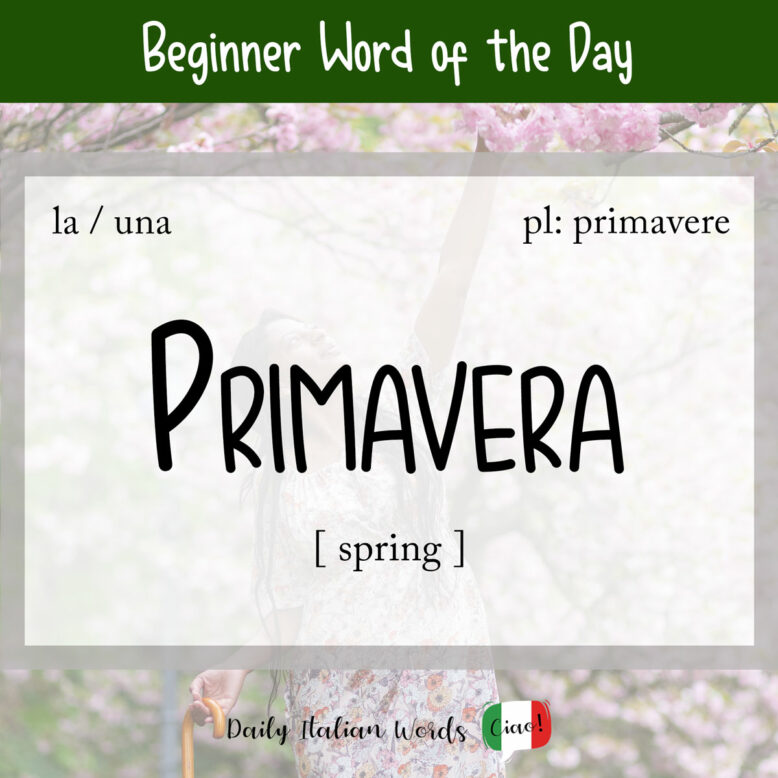If you ask someone about their favourite of the four seasons, chances are they’ll say spring, or primavera in Italian. Sadly, this lovely time of year is coming to an end!
primavera
spring

It derives from the Late Latin primavera, which goes back to the Classical Latin ablative primo vere, signifying “at the beginning of spring.”
Primavera is a feminine noun, so it takes the following definite and indefinite articles:
- la primavera = the spring
- una primavera = a spring
- le primavere = the springs
- delle primavere = (some) springs
La mia stagione preferita è la primavera.
My favourite season is spring.
Primavera is the season following winter (inverno) and preceding summer (estate). It is characterised by increasing daylight hours and rising temperatures, and marks the time when plants begin to bloom, and trees grow new leaves (foglie) after their winter dormancy.
Spring typically brings rain showers, leading to lush, green landscapes (paesaggi) and the growth of crops (raccolti). It’s a period of transition, symbolising renewal and the start of new life cycles in nature (la natura).

La primavera inizia intorno al 20 marzo e finisce intorno al 21 giugno.
Spring starts around March 20th and ends around June 21st.
Figuratively speaking, primavera can also refer to the beginning of something, such as la primavera di una civiltà (the beginning of a civilisation), or the prime of a person’s life. It can also jokingly refer to the individual years of a person’s life, as in the phrase ha molte primavere sulle spalle (literally “he has many springs (years) on his shoulders”).
Used as an invariable adjective, primavera can describe something that is young and inexperienced, such as a young team (una squadra primavera), or it can denote a dish that is made using ingredients obtained in the spring.
And what about everyone’s favourite Chinese appetiser, the spring roll? Well, it goes by the same name in Italian – involtino primavera!

Heather Broster is a graduate with honours in linguistics from the University of Western Ontario. She is an aspiring polyglot, proficient in English and Italian, as well as Japanese, Welsh, and French to varying degrees of fluency. Originally from Toronto, Heather has resided in various countries, notably Italy for a period of six years. Her primary focus lies in the fields of language acquisition, education, and bilingual instruction.


